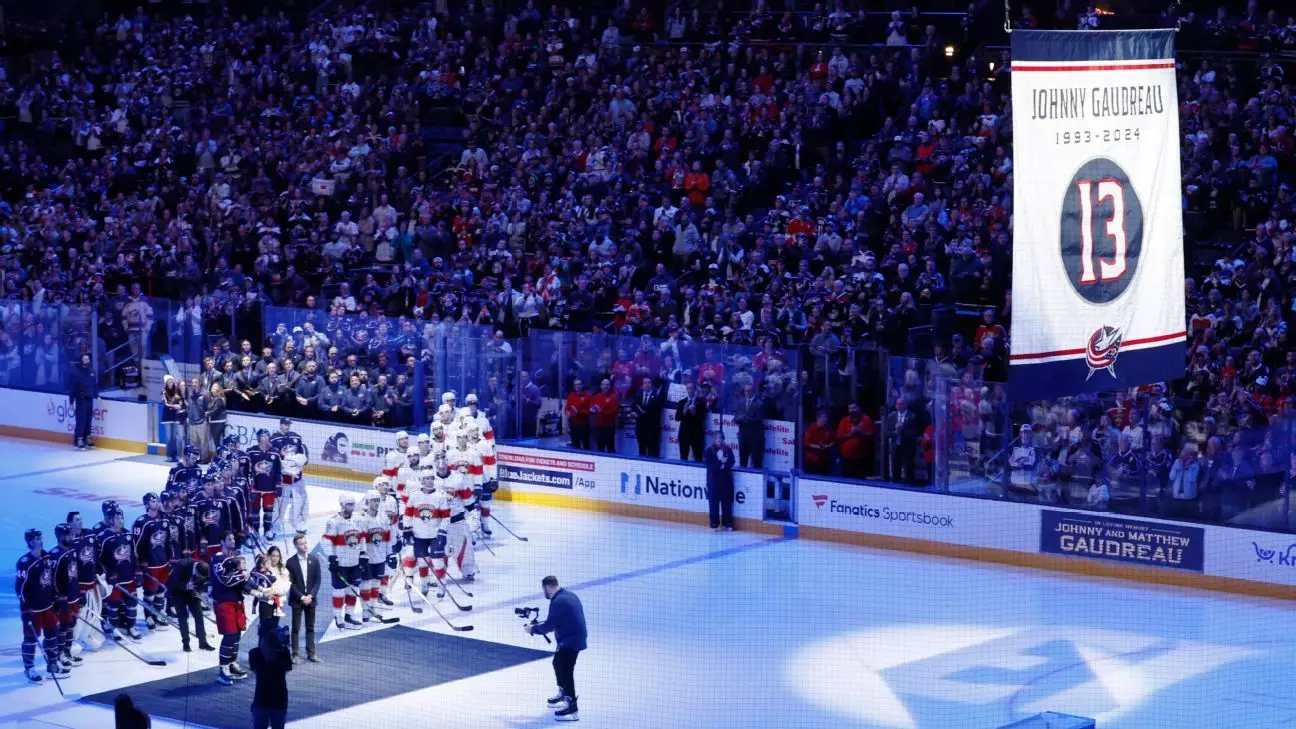Tragedy and Responsibility: The Weight of Choices in a Fatal Incident
Life is filled with moments of choice, some trivial and others with the potential to alter lives forever. In Salem, New Jersey, the tragic incident involving pro hockey player Johnny Gaudreau and his brother Matthew serves as a stark reminder of how fragile life can be. The brothers, who were both passionate cyclists, died in a midnight accident that brought to light not only the tragedy of their loss but also the complex web of responsibility involved. This incident has opened up a flood of emotions and legal debates, challenging us to consider where accountability truly lies.
As someone who loves exploring the intricacies of human behavior and decision-making, this case resonates deeply with me. It’s a poignant example of how choices made in an instant can have lasting consequences. The defense’s argument that the brothers’ blood alcohol content played a role in their deaths adds another layer of complexity. It’s a controversial stance that demands careful scrutiny, especially in an era where we strive to understand the moral implications of our actions fully. This narrative challenges us to think critically about where blame should be placed.
The heartache felt by the Gaudreau family reminds us all that behind every headline is a story of personal loss and grief. These two men were more than just headlines; they were sons, brothers, and fathers whose lives were cut short under tragic circumstances. As we delve into this case, it’s essential to remember that real people are at its core, navigating through an unimaginable tragedy while seeking answers and accountability.
Key Takeaways
- The case highlights the complexities of assigning responsibility in incidents involving impaired driving.
- Emotional narratives can sway public perception and influence legal proceedings.
- Accountability is crucial in ensuring justice for victims and preventing future tragedies.
The Legal Landscape of Accountability
The courtroom debates surrounding this case have been intense and emotionally charged. The central question revolves around whether the Gaudreaus’ actions contributed to their untimely deaths. Superior Court Judge Michael Silvanio made it clear that this line of reasoning would not affect Sean Higgins’ charges. The judge emphasized that the brothers were cycling lawfully when they were struck, underscoring the importance of maintaining focus on Higgins’s actions rather than shifting blame onto the victims.
The prosecution presented compelling evidence against Higgins, painting a picture of reckless behavior and poor judgment. Witnesses testified to his erratic driving prior to the accident, supported by records showing his alcohol consumption that night. These details construct a narrative of negligence that goes beyond mere carelessness into criminal territory. Higgins’s decision to drive under such conditions must be scrutinized carefully to ensure justice prevails.

The Role of Media Narratives and Public Perception
This case has attracted significant media attention, thrusting the Gaudreau family into an unwelcome spotlight. Such visibility often amplifies public opinion, which can both support and complicate legal processes. The tragic demise of these beloved figures evokes widespread sympathy but also raises questions about societal attitudes towards impaired driving. It’s crucial to approach these narratives critically, understanding how they may influence broader conversations about accountability.
Sean Higgins’s portrayal by the media provides a contrasting view: one that acknowledges his personal struggles but does not excuse his dangerous decisions. While dealing with emotional turmoil is understandable, it cannot become an excuse for actions that endanger others’ lives. Society must uphold standards where personal challenges do not overshadow legal responsibilities, particularly when those choices lead to irrevocable harm.
Aftermath and the Need for Justice
The aftermath of this heartbreaking incident is felt deeply by all involved, especially by those left behind: young children and grieving partners trying to navigate life without their loved ones. Their story serves as a wake-up call about the dangers posed by impaired driving and reckless behavior on our roads every day. It reminds us that each choice carries weighty consequences impacting not just individuals but entire communities.
As public discourse unfolds around this case, it should prioritize justice for Johnny and Matthew Gaudreau while advocating changes in societal attitudes toward drinking and driving. This moment offers an opportunity for reflection on how we handle responsibility collectively — emphasizing education about safe behaviors rather than shifting blame away from those truly accountable like Sean Higgins.

Final Thoughts
This tragic incident forces us all to confront difficult truths about human nature and responsibility — reminding us why accountability matters so deeply within society today more than ever before. Each step taken towards ensuring justice helps honor those lost through senseless acts while encouraging proactive change moving forward together against similar occurrences happening again elsewhere tomorrow.
The weight carried by choices made will continue echoing long after headlines fade away; let’s commit ourselves now toward building safer futures wherein tragedies like these become less frequent occurrences thanks largely due diligence shown during times needing most urgently such efforts from everyone involved altogether working harmoniously side-by-side always keeping shared goals firmly mindsets collectively achieving positive outcomes ultimately benefiting greater good humanity overall deservedly so indeed finally achieved successfully accomplished once reached fulfilled fully realized completely attained entirely possible indeed!
tragic incident responsibility justice accountability


Leave a Reply